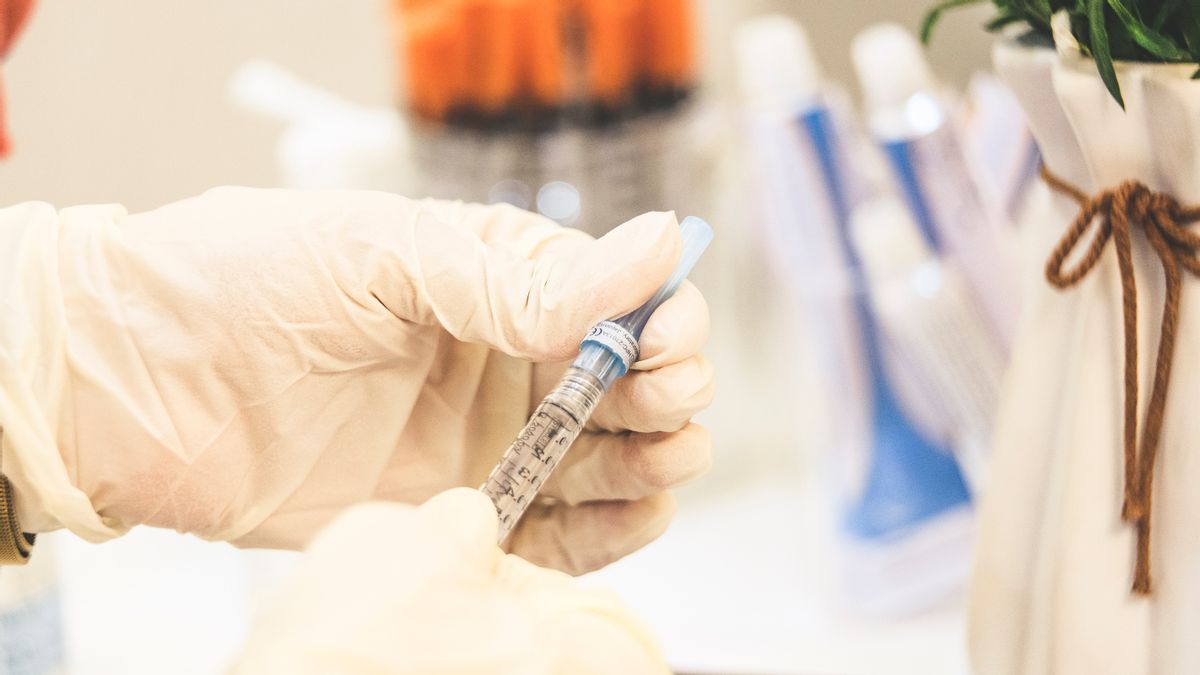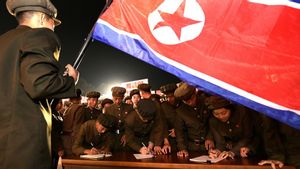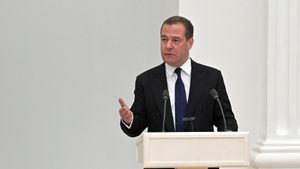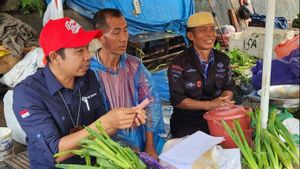JAKARTA - The Eropa Union failed to make a breakthrough in talks on the vaccine supply crisis with AstraZeneca on Wednesday, January 27 local time. The European Union asked AstraZeneca to explain how the vaccine manufacturer will supply the EU's needs with backup vaccines from factories in Europe and the UK.
"We regret the lack of clarity on delivery schedules and ask for a clear plan from AstraZeneca for the fast delivery of the quantity of vaccine we have stored for Q1 (1st quarter)," EU Health Commissioner Stella Kyriakides told Reuters.
Earlier, Kyriakides said in a press conference that two of the four factories where AstraZeneca is committed to providing vaccines to the EU are in the UK.
However, his condition became worse after the statement about the location of the factory made by AstraZeneca, was different from what was called by the European Union. Plus, the UK who partnered with AstraZeneca felt the upper hand.
Interrupt vaccinations
AstraZeneca Chief Executive Pascal Soriot said on Tuesday 26 January, that the EU contract is based on a best-effort clause and does not bind companies to specific delivery schedules.
"Vaccines destined for the European Union are produced at four plants in Belgium, the Netherlands, Germany and Italy," said Soriot

However, EU Commission officials said on Wednesday that the contract regulates that the company has also committed to providing vaccines from two UK factories.
This condition is even more complicated, after Britain, which has left the European Union, feels that it is better to plan its own vaccination program, rather than sticking to the EU program. This is as stated by British Prime Minister Boris Johnson.
"I think we are capable of doing something differently, and better, in some ways (from the European Union)," he said in parliament.
Last week, AstraZeneca, partnering with the University of Oxford in developing a vaccine, said it would cut vaccine supplies to the European Union for the first quarter to just 31 million doses or 60 percent less than previously agreed. The reason is, there are production problems at the Belgian factory.
As a result of this seriousness, the vaccination program in Europe has been running slower than the UK, a situation that has made the European community even more frustrated because the third wave of COVID-19 has started.
For example in Madrid and Catalonia, two of the richest regions in Spain that have had to limit vaccinations due to limited supplies of vaccines, even though the third wave of transmission has occurred.
Increasingly disheveled, a factory in Wales that produces the AstraZeneca vaccine, was briefly evacuated after receiving a suspicious package, so a bomb squad was deployed to deal with the situation at the factory.
To note, the European Union Contract with AstraZeneca is an advance purchase agreement for the supply of at least 300 million doses provided the vaccine is approved as a safe and effective vaccine, with doses given in stages. This is expected to be approved by the European Medicines Agency (EMA).
The English, Chinese, Japanese, Arabic, and French versions are automatically generated by the AI. So there may still be inaccuracies in translating, please always see Indonesian as our main language. (system supported by DigitalSiber.id)













